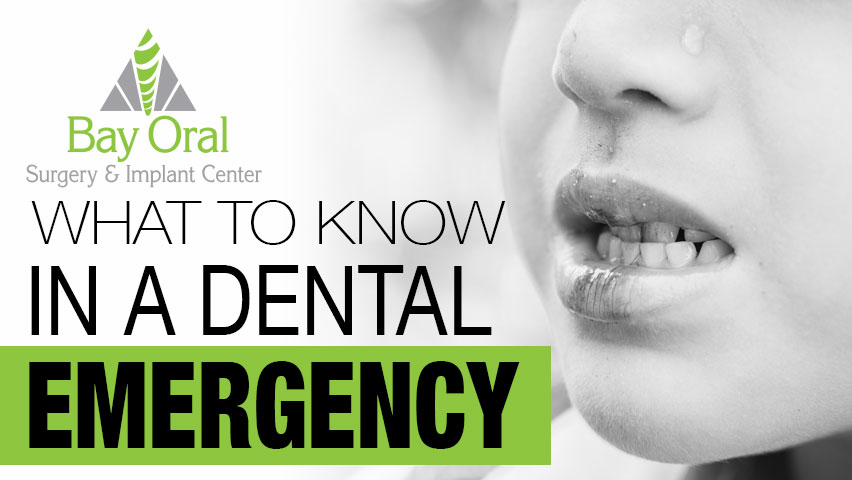
It’s good to know in advance where to go and what to do in the event of dental emergencies, so you are prepared.
There can be a variety of types of dental emergencies and some are more urgent than others. Some of the most common dental emergencies include knocked out teeth, a cracked tooth, toothaches, displaced filling or crown, bitten tongue or lip, something stuck in the mouth and facial trauma or injuries. Here are some tips to keep in mind if you experience any of these issues.
Where to go
In all dental emergencies it is best to see your dentist or an oral surgeon as soon as possible. Most dentists and oral surgeons have someone on-call for emergencies, so keep their emergency number on-hand or call their office and it will likely provide you with a number to call in case of an after-hours emergency. Seeing your dentist will provide you with a more immediate solution–saving you time and money over a visit to the emergency room.
(If you are on vacation or out of town, it is still best to contact a local dentist for your dental emergency. A quick Google search should help you find one.)
What to do
Here are a few tips on what to do in the most common dental emergencies until you can get to a dentist or oral surgeon:
- For a knocked-out permanent or adult tooth, if possible, try placing the tooth back in the socket without touching the root until you can get to the dentist. If that is not possible, place the tooth in between your cheek and gums or put it in salt water or milk until you can get to the dentist/oral surgeon. Never attempt to wipe the tooth off because the attached remnants of the ligament holding the tooth in the jaw are vital to the successful replanting of the tooth. Time is of the essence with this situation, so the sooner the tooth is re-inserted into the dental socket, the better chance it will survive.
- For a cracked tooth, immediately rinse the mouth with warm water to clean the area. Put a cold compress on the face as needed to keep any swelling down.
- For a toothache, rinse the mouth with warm water to clean it out. Gently floss to remove any food caught between the teeth that may be causing the pain. Take a pain reliever to help with the pain until you can see a professional.
- If a filling or crown breaks or falls off you can likely wait a few days to have it fixed or replaced, but call your dentist to let them know the situation and decide.
- For a bitten tongue or lip, clean the area gently with water and apply a cold compress. If the bite is severe, stitches may be necessary and you will want to get to the dentist right away.
- If an object is stuck in your or your child’s teeth, you can try to gently remove it with floss, but do not try to remove it with sharp or pointed instruments.
- For facial trauma or injury it may be necessary to go to the Emergency Room depending on the severity and if there are any other bodily injuries. You may consider calling your dentist or oral and maxillofacial surgeon to meet you there.
The oral and maxillofacial surgeons at Bay Oral Surgery & Implant Center in Green Bay, Marinette and Niagara, Wisconsin are uniquely qualified to manage and treat various forms of facial trauma and injuries. They are on staff at local hospitals and provide emergency room coverage for facial injuries, which include facial lacerations, intra oral lacerations, knocked out teeth, fractured facial bones (cheek, nose and eye socket), and fractured jaws (upper and lower).
